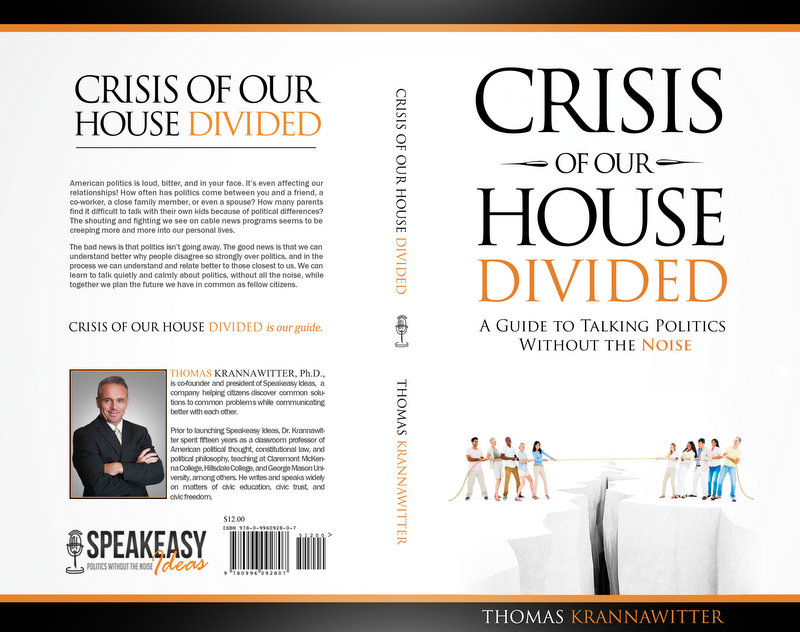Federal prohibition of the manufacture, transportation, and sale of alcoholic beverages ran from 1920, when the 18th Amendment went into effect, until late 1933, when the 21st Amendment repealed the 18th. The intervening thirteen years gave rise to a unique kind of business, the “speakeasy,” where Americans of all kinds would gather in secret to purchase and consume adult libations—in violation of federal law, to be sure.
SPEAKING EASY
But those people did more than enjoy cool drinks. They also talked and listened to one another. That’s why the name “speakeasy” contained more than a grain of truth, if perhaps fortified by some grains of malt barley as well.
I was not present at those speakeasy conversations, of course, but I imagine that a good part of their conversations revolved around politics, government, and the laws they were violating. If Americans have proven to be good at anything in the past, it’s civil political discussion.
No less of an observer than Alexis de Tocqueville commented on how thoroughly political the American people of his day were, in contrast to Europeans, because Americans were quite self aware that they were sovereign, self-governing citizens, not subjects of some crowned king or prince.
SHOUTING INSTEAD OF TALKING?
But are we Americans still capable of talking, listening, discussing, and even debating political matters in ways that are constructive? Is there anything of our common civic spirit that still remains? Or can we hope for nothing more than the shouting heads we see nightly on cable TV news shows?
We at Speakeasy Ideas think there’s a better way. We’ve watched politics divide families, come between friends, and disrupt colleagues trying to work together. Probably you’ve seen the same, all too often. But much of the acrimony and discord spring from common, yet deeply held, misperceptions of one another. Often, people who are diametrically opposed politically have many of the same concerns, and are looking for common solutions.
CRISIS OF OUR HOUSE DIVIDED
Helping Americans understand and talk with one another about the political subjects that seem to divide us is the purpose of my latest book: Crisis of Our House Divided: A Guide To Talking Politics Without The Noise.
It’s written mainly for non-academics. It’s a short, easy read. It’s meant to help ordinary people communicate better with their fellow citizens, their friends and family members, and hopefully fuel the discovery of the common solutions we all want.
The book is available now at Amazon.com, where you can get it in paperback or e-version, and it will soon be available as an audio book as well. And, while you’re at it, take a moment and write a review at Amazon. I am deeply interested in your opinions, and many others will be as well.
RECOVERING CONSTITUTIONAL GOVERNMENT
We are free to have a drink today if we so choose, thank goodness. “Speakeasies” are a thing of the past. Still, we live under ever-growing government power and mountains of federal regulations.
In a way, our situation is even more perilous than it was at the time of Prohibition: Back then, if members of Congress wanted to exercise a power not granted by the Constitution, such as regulating or prohibiting alcohol, they at least had the decency to propose an amendment to the American people and request additional power before exercising it. That’s how we got the 18th Amendment. And when Americans ratified the 21st Amendment, they were taking power away from government.
Today, many elected officials think our Constitution is, literally, a laughing matter. They do what they want, with virtually no constitutional scruples. Let’s change that. Let’s get back the kind of government that is rightfully ours. Let’s solve the problems we all want to solve. Let’s make tomorrow better than today. And let’s start by learning how to speak easy with one another, becoming more persuasive and more effective in our fight for freedom.

